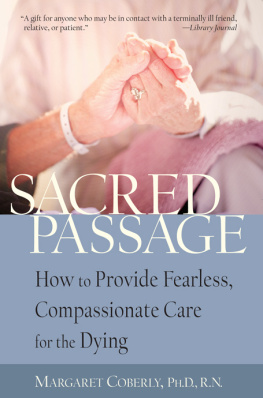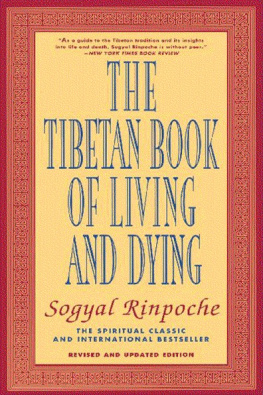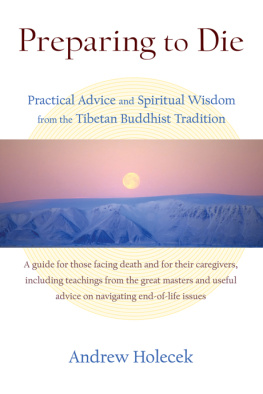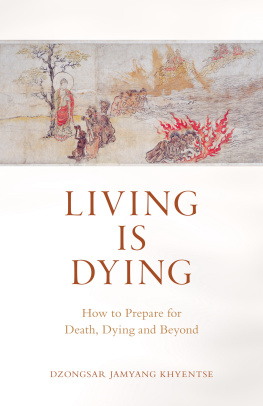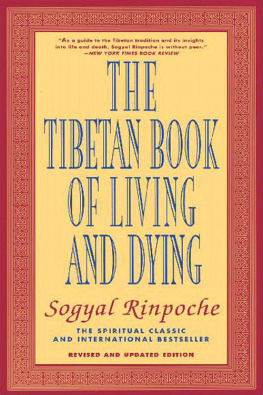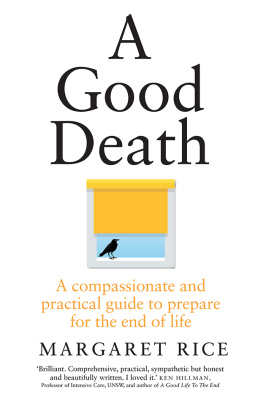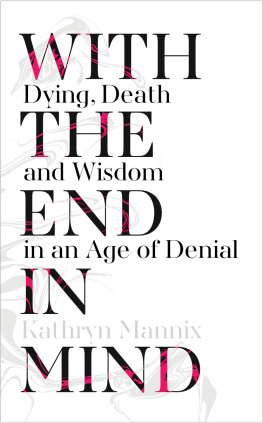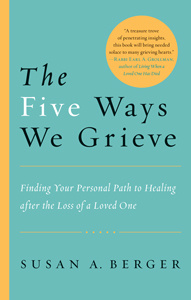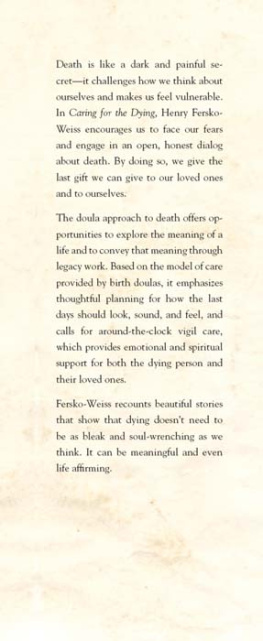Margaret Coberly - Sacred Passage: How to Provide Fearless, Compassionate Care for the Dying
Here you can read online Margaret Coberly - Sacred Passage: How to Provide Fearless, Compassionate Care for the Dying full text of the book (entire story) in english for free. Download pdf and epub, get meaning, cover and reviews about this ebook. year: 2003, publisher: Shambhala, genre: Religion. Description of the work, (preface) as well as reviews are available. Best literature library LitArk.com created for fans of good reading and offers a wide selection of genres:
Romance novel
Science fiction
Adventure
Detective
Science
History
Home and family
Prose
Art
Politics
Computer
Non-fiction
Religion
Business
Children
Humor
Choose a favorite category and find really read worthwhile books. Enjoy immersion in the world of imagination, feel the emotions of the characters or learn something new for yourself, make an fascinating discovery.
- Book:Sacred Passage: How to Provide Fearless, Compassionate Care for the Dying
- Author:
- Publisher:Shambhala
- Genre:
- Year:2003
- Rating:5 / 5
- Favourites:Add to favourites
- Your mark:
Sacred Passage: How to Provide Fearless, Compassionate Care for the Dying: summary, description and annotation
We offer to read an annotation, description, summary or preface (depends on what the author of the book "Sacred Passage: How to Provide Fearless, Compassionate Care for the Dying" wrote himself). If you haven't found the necessary information about the book — write in the comments, we will try to find it.
In the West, death is viewed as a tragic and horrible event. Coberly shows us how this view generates fear and denial, which harm the dying by adding unnecessary loneliness, confusion, and mental anguish to the dying process. Tibetan Buddhism focuses on the nature of death and how to face it with honesty, openness, and courage. In this view, death is not a failure, but a natural part of life that, if properly understood and appreciated, can offer the dying and their loved ones an opportunity to gain valuable insight and wisdom. Coberly argues that the Tibetan Buddhist outlook can be a useful antidote to the culture of fear and denial that surrounds death in the West and can help caregivers become more fully present, fearless, honest, and compassionate.
Sacred Passage highlights two very practical teachings on death and dying from the Tibetan Buddhist tradition and presents them in clear, nontechnical language. Readers learn about the eight stages of dissolution leading to death, a detailed roadmap of the dying process that describes the sequence of physical, psychological, and spiritual changes that occur as we die. Coberly also presents the death meditation, a contemplative exercise for developing a new relationship to deathand life. The book also includes a lengthy, annotated list of recommended readings for added guidance and inspiration.
Topics include:
How the terminally ill can experience emotional and spiritual healing even when they cant be cured
Why Western medicines relentless focus on curing disease has led to inadequate care for the dying
What to expect during the dying process
How our fear and denial of death harm the dying
Techniques to help caregivers promote a peaceful environment for the dying and their loved ones
How to meet the changing physical and emotional needs of the dying
Helpful advice on what to say and how to behave around the terminally ill
Margaret Coberly: author's other books
Who wrote Sacred Passage: How to Provide Fearless, Compassionate Care for the Dying? Find out the surname, the name of the author of the book and a list of all author's works by series.

